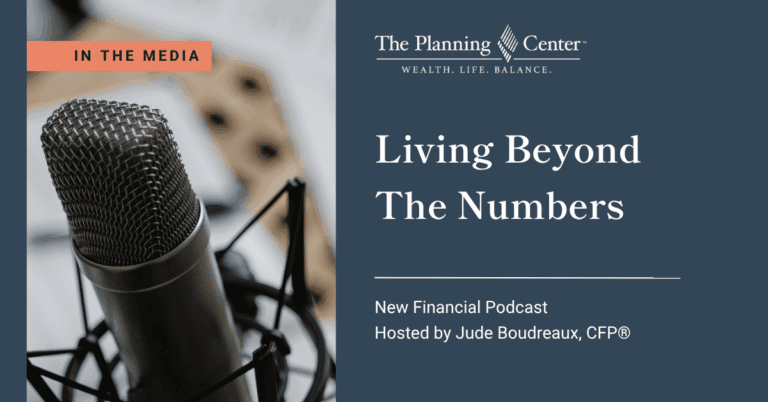by Dr. William “Marty” Martin
Life’s surprises catch us at the best of times and the worst of times.
Reflect back a few years ago at this time. The markets were in a serious funk with an understandable anxiety about Europe crashing as an economy. Now as 2019 ends and we ease into 2020, the markets are soaring with the Dow recently crossing the 28,000 threshold. The employment picture is a lot brighter than a year ago.
Throughout life’s surprises, the key is to learn how to navigate life transitions as if you were a sea captain—expect to sail through both smooth and turbulent waters. Many of life’s surprises have a financial impact. When life changes, money changes. When money changes, life changes.
Some individuals, it seems, are less surprised by this than others are. Why? Some of us anticipate what may be down the road for our families and ourselves. Others tightly hold onto the present or the past, never looking ahead at what may be just around the corner.
A few of us catch a glimpse of the future, freak out and imitate an ostrich—burying our heads into the sand. Denial. Denial is an effective short-term coping response, but a lousy life navigation system. To activate your life navigation system, begin by taking an inventory of the anticipated changes in your life within the next 12 months, 3-5 years, and beyond. This inventory will reveal both desired and not so desired changes. In short, you are taking a pulse of your Life Transitions.
After identifying your life transitions, ask yourself this question, “What decisions have to be made today, sometime soon, or in the future?” This process is called the Decision Free Zone by the Sudden Money Institute. At The Planning Center, we incorporate many of their financial life transition tools in our process to help you prepare for the predictable surprises in your life and navigate turbulent waters when a financial storm suddenly pops up when and where you least expect it.
There are two types of financial life storms that pop up without notice in our lives. The first is Money Shock. And the second is Sudden Money. Envision having your income drop in half. Picture your investment portfolio reduced by a third. Imagine receiving the dreaded “pink slip” or not getting the approval for the bank loan to expand your business.
On the flip side, visualize yourself receiving a financial windfall from the sale of a business, an inheritance, a lump sum retirement distribution, or a bonus at work. All of these are Sudden Money events. They are desirable, certainly, but in many cases still trigger the need to make a transition in your life and clarify which decisions need to be made now and which decisions can be made later.
One of the common themes among all financial life transitions is stress. Stressful experiences make it challenging to formulate wise decisions, to engage in thoughtful discussions with others, and even to take action on simple tasks with a longer-term perspective. You may be wondering how a Sudden Money event can be stressful. Hans Seyle, MD, a legendary stress researcher, proved that stress comes in two flavors: distress (bad stress) as in the case of Money Shock, and eustress (good stress) as in the case of Sudden Money. Both flavors of stress need to be recognized and managed prior to making any decision or taking any action.
The next time your alarm button goes off because of a financial life transition, stop and identify what in your life has changed. Then, take an honest inventory of your coping responses. If the demands of the financial life transition are overpowering your coping resources, seek help and support. Call on The Planning Center team if you need our counsel or guidance. We are always here for you. And remember…when life changes, money changes. When money changes, life changes.
 Marty Martin, PsyD, is a Psychologist in the Chicago office of The Planning Center, a fee-only financial planning and wealth management firm.
Marty Martin, PsyD, is a Psychologist in the Chicago office of The Planning Center, a fee-only financial planning and wealth management firm.
Email him at: info@theplanningcenter.com.







